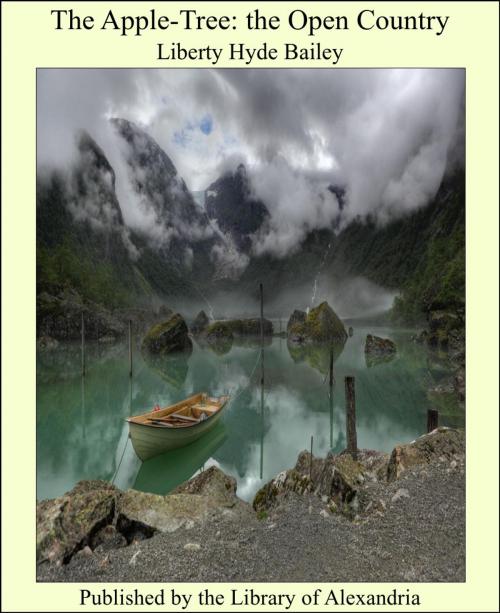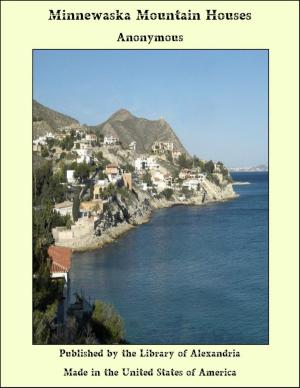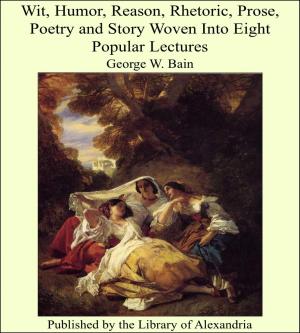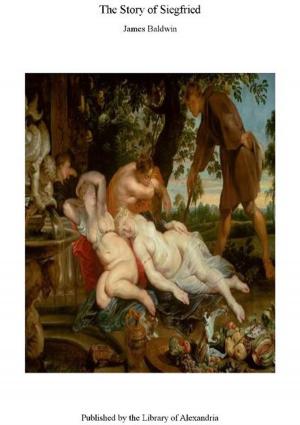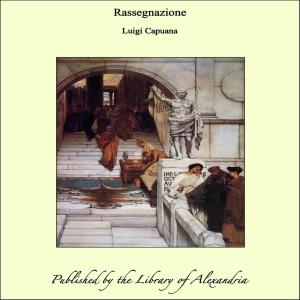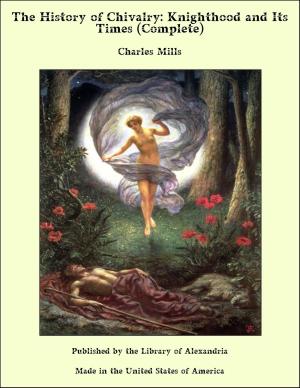The Apple-Tree: the Open Country
Nonfiction, Religion & Spirituality, New Age, History, Fiction & Literature| Author: | Liberty Hyde Bailey | ISBN: | 9781465535399 |
| Publisher: | Library of Alexandria | Publication: | March 8, 2015 |
| Imprint: | Language: | English |
| Author: | Liberty Hyde Bailey |
| ISBN: | 9781465535399 |
| Publisher: | Library of Alexandria |
| Publication: | March 8, 2015 |
| Imprint: | |
| Language: | English |
I WHERE THERE IS NO APPLE-TREE The wind is snapping in the bamboos, knocking together the resonant canes and weaving the myriad flexile wreaths above them. The palm heads rustle with a brisk crinkling music. Great ferns stand in the edge of the forest, and giant arums cling their arms about the trunks of trees and rear their dim jacks-in-the-pulpit far in the branches; and in the greater distance I know that green parrots are flying in twos from tree to tree. The plant forms are strange and various, making mosaic of contrasting range of leaf-size and leaf-shape, palm and grass and fern, epiphyte and liana and clumpy mistletoe, of grace and clumsiness and even misproportion, a tall thick landscape all mingled into a symmetry of disorder that charms the attention and fascinates the eye. It is a soft and delicious air wherein I sit. A torrid drowse is in the receding landscape. The people move leisurely, as befits the world where there is no preparation for frost and no urgent need of laborious apparel. There are tardy bullock-carts, unconscious donkeys, and men pushing vehicles. There are odd products and unaccustomed cakes and cookies on little stands by the roadside, where the turbaned vendor sits on the ground unconcernedly. There are strange fruits in the carts, on the donkeys that move down the hillsides from distant plantations in the heart of the jungle, on the trees by winding road and thatched cottage, in the great crowded markets in the city. I recognize coconuts and mangoes, star-apples and custard-apples and cherimoyas, papayas, guavas, mamones, pomegranates, figs, christophines, and the varied range of citrus fruits. There are also great polished apples in the markets, coming from cooler regions, tied by their stems, good to look at but impossible to relish; and I understand how these people of the tropics think the apple an inferior fruit, so successfully do the poor varieties stop the desire for more. There are vegetables I have never seen before. I am conscious of a slowly moving landscape with people and birds and beasts of burden and windy vegetation, of prospects in which there are no broad smooth farm fields with fences dividing them, of scenery full of herbage, in which every lineament and action incite me and stimulate my desire for more, of days that end suddenly in the blackness of night
I WHERE THERE IS NO APPLE-TREE The wind is snapping in the bamboos, knocking together the resonant canes and weaving the myriad flexile wreaths above them. The palm heads rustle with a brisk crinkling music. Great ferns stand in the edge of the forest, and giant arums cling their arms about the trunks of trees and rear their dim jacks-in-the-pulpit far in the branches; and in the greater distance I know that green parrots are flying in twos from tree to tree. The plant forms are strange and various, making mosaic of contrasting range of leaf-size and leaf-shape, palm and grass and fern, epiphyte and liana and clumpy mistletoe, of grace and clumsiness and even misproportion, a tall thick landscape all mingled into a symmetry of disorder that charms the attention and fascinates the eye. It is a soft and delicious air wherein I sit. A torrid drowse is in the receding landscape. The people move leisurely, as befits the world where there is no preparation for frost and no urgent need of laborious apparel. There are tardy bullock-carts, unconscious donkeys, and men pushing vehicles. There are odd products and unaccustomed cakes and cookies on little stands by the roadside, where the turbaned vendor sits on the ground unconcernedly. There are strange fruits in the carts, on the donkeys that move down the hillsides from distant plantations in the heart of the jungle, on the trees by winding road and thatched cottage, in the great crowded markets in the city. I recognize coconuts and mangoes, star-apples and custard-apples and cherimoyas, papayas, guavas, mamones, pomegranates, figs, christophines, and the varied range of citrus fruits. There are also great polished apples in the markets, coming from cooler regions, tied by their stems, good to look at but impossible to relish; and I understand how these people of the tropics think the apple an inferior fruit, so successfully do the poor varieties stop the desire for more. There are vegetables I have never seen before. I am conscious of a slowly moving landscape with people and birds and beasts of burden and windy vegetation, of prospects in which there are no broad smooth farm fields with fences dividing them, of scenery full of herbage, in which every lineament and action incite me and stimulate my desire for more, of days that end suddenly in the blackness of night
